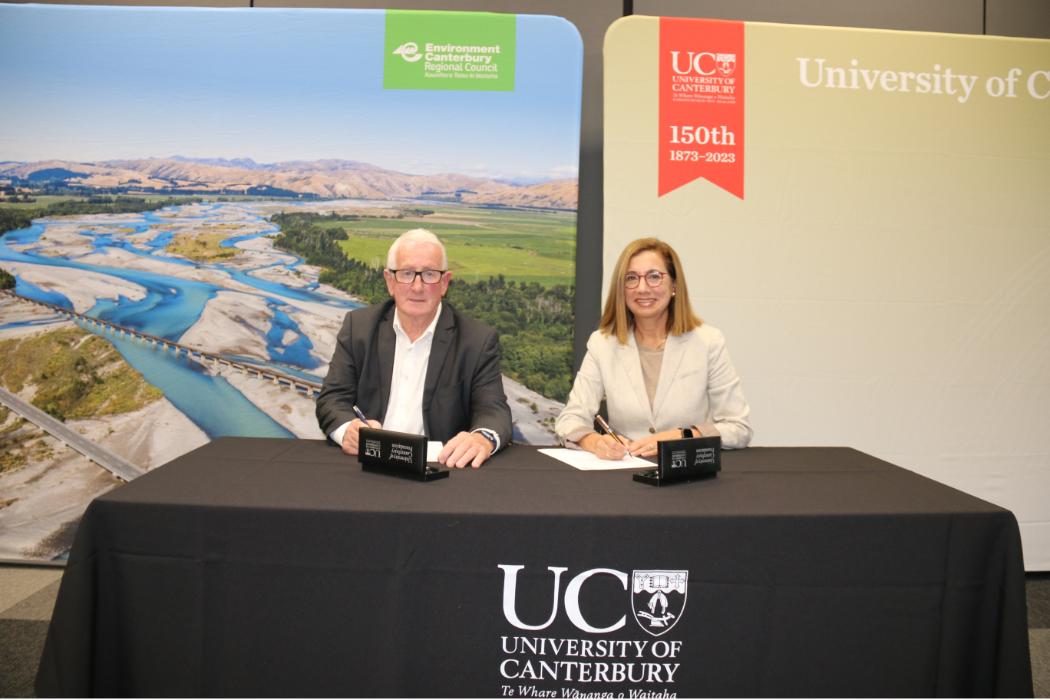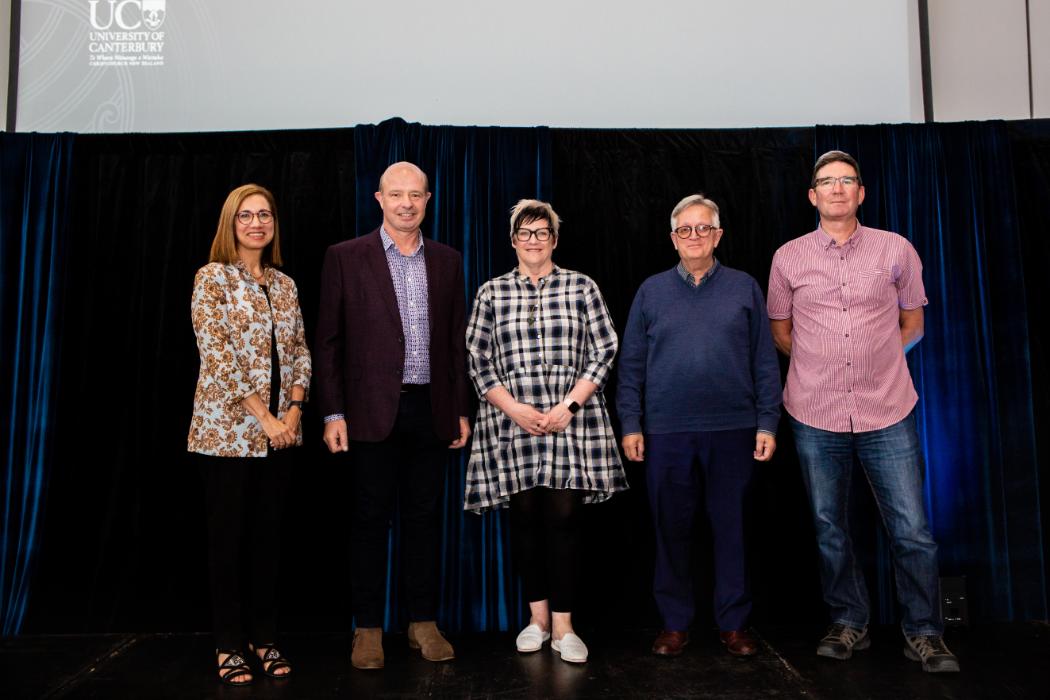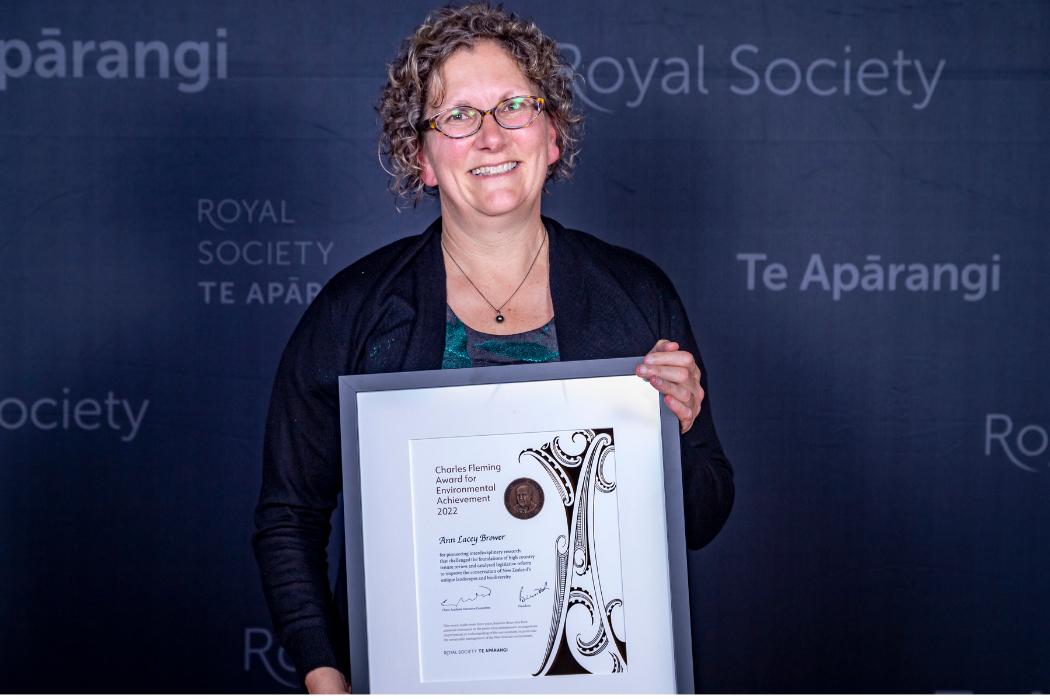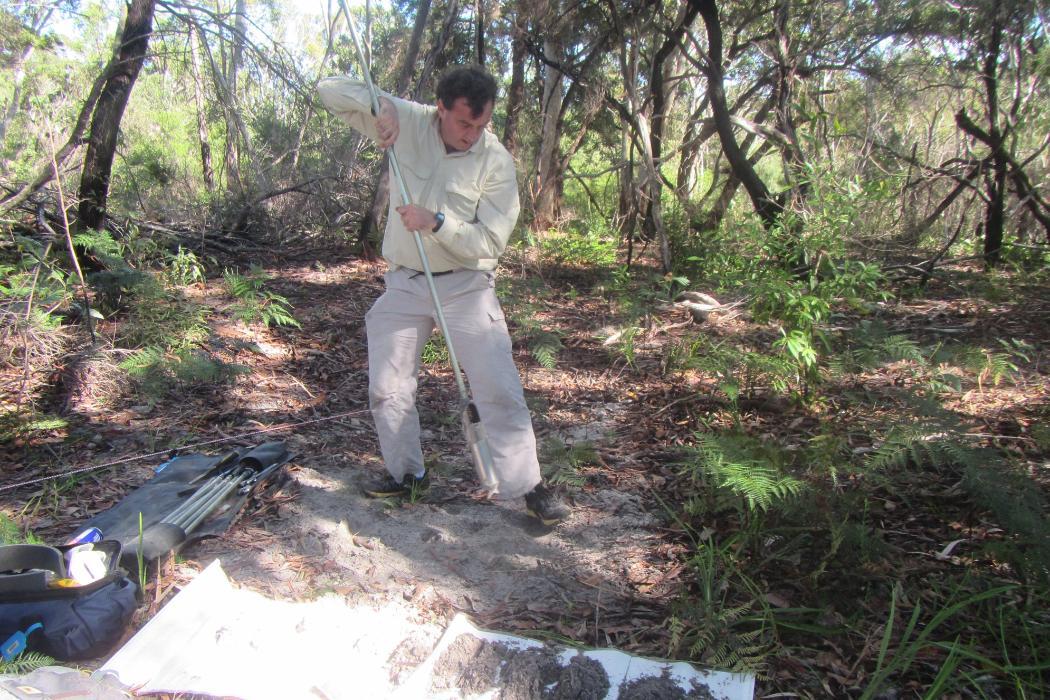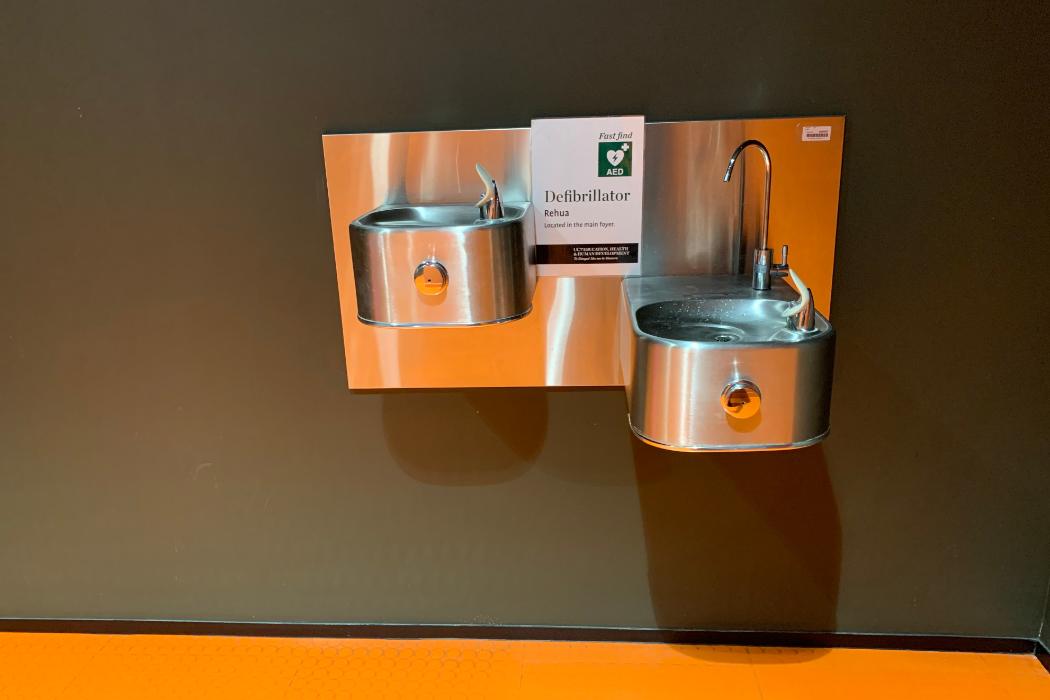The box includes tools to sample freshwater invertebrates, information on sampling methods, invertebrate identification guides and activities based on three key concepts of healthy freshwater habitats, invertebrates as biomonitoring tools, and food webs.
“This was my first time using the kit and I think it was really handy for what we were doing. It allowed students to really get into the stream and access deeper areas. Also, it enabled students to measure the dissolved oxygen and learn about this.
“The students absolutely loved the waders and were very eager to use these when they figured out how well they worked in the stream.”
The Biodiversity Box provides equipment that schools don’t typically have says Kōrero Pūtaiao | Science Communication and Outreach technician Matt Walters.
“By borrowing the kit, for free, teachers can conduct hands-on monitoring activities in their local waterways that would otherwise be impossible. The resources allow school students to be a real scientist for a day and investigate their own waterways in the same way our research scientists do across Canterbury.”
The kit is regularly booked out, he says. “The feedback is always overwhelmingly positive. Teachers say they find our kits very easy to use and they comment that the kits are great as they allow students to use real scientific equipment to carry out practical activities. The proof to me that they are working is that our kits are requested by the same schools year after year and demand is growing as more teachers discover the resources.”
The Biodiversity Box is one of the ways that the university supports local schools and the community in biodiversity activities and other science outreach work.
The university was recently ranked first in the world for Sustainable Development Goal (SDG) 12 – Responsible Consumption and Production and 11th in the world for SDG 13 – Climate Action.
The University is developing new targets for improving on-campus operations to walk the talk on biodiversity action including predator control, increased native canopy cover, improving stream quality and increased insect diversity.
Read more about UC’s Freshwater Biodiversity Box.




